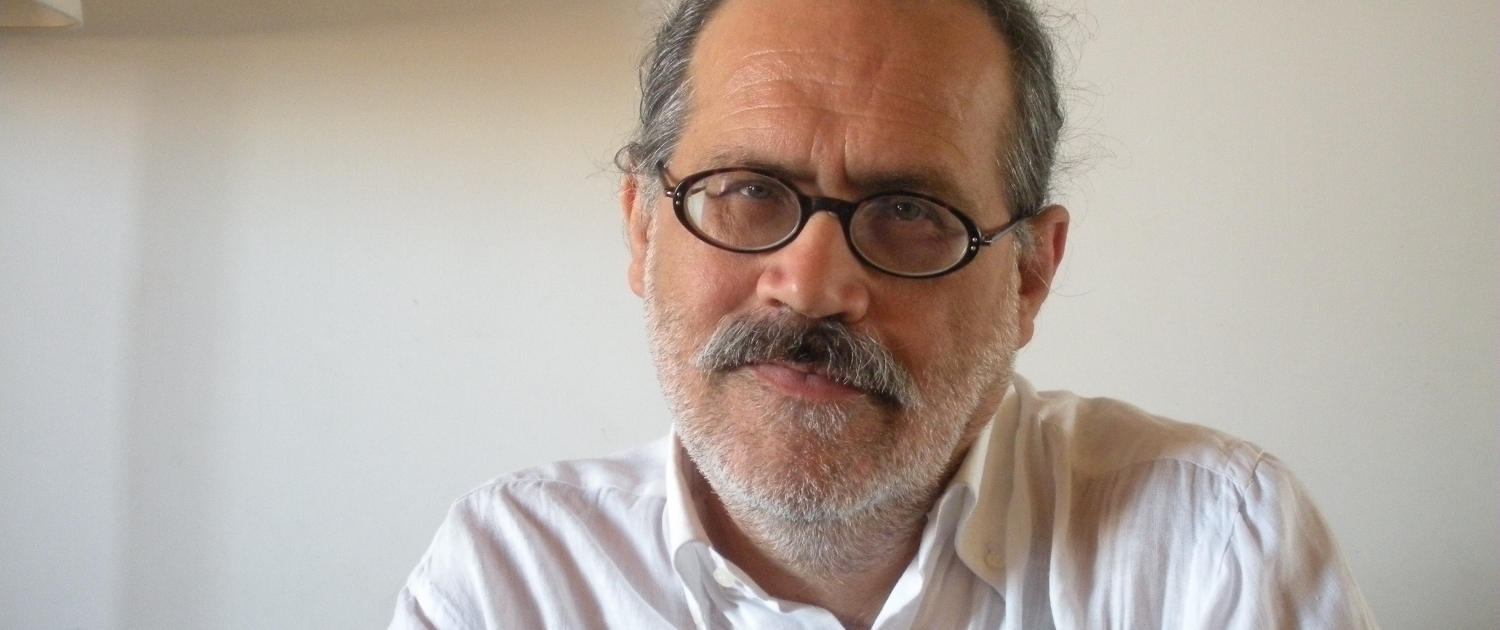Giuseppe Gaudino’s cinema moves – up to the limit when veering away, when cutting from one frame to another, in the shadowy, chiaroscuro line separating outline from outline – without imitation, or rather, it could be said, consciously anti-imitation, despite the fact that the cue is anthropological. It moves in an expressionist ecosystem in which the author’s focus, rather than passively absorbing the image taken from reality, digs into it, penetrates it, bringing out its deep, viscous, underworld essences, with which he then sets up a mise-en-scène made up of symbols and myths (a crumbling of the figures as they return from the past, a loss of contours, a forgetfulness of movement), of narrative ellipses in which the figures wander like fleshy ghosts, fitful in the search for their own space, their own time which, in the end, can only be the space and time of cinema, this arcane plane of existence in which the moon spin is played out in Nietzschean style, the return to the being of things. Here then is the continuous, restless mirroring of the contemporary age with its own archaic, mythical origins. The surfacing of something animated (of animated drawing) in his cinema is the return of images from the depths of time that can only be naturally dreamlike, ghostly: a mechanism, the nakedness of the mechanical self-propelling of the silhouettes, the result of a jump in frames, of a loss of frames that occurred during this reminiscence. For this reason, for being perhaps the greatest exponent of an aesthetic that is as minority as it is exhilarating, Gaudino is a central figure in Italian cinema, itself cloaked in myth, if we consider that eighteen years had to pass before the debut of Giro di lune tra terra e mare (1997) was followed by his second fiction feature film, Per amor vostro, presented in 2015 at the Venice Film Festival, eagerly awaited by all those who still carried in their eyes the flashes, the reflections of a moon spin, a giro di lune.
Luigi Abiusi
Biografia Giuseppe M. Gaudino
After graduating from the Academy of Fine Arts in Naples, Giuseppe M. Gaudino attended DAMS, specialising in Performing Arts, in Bologna. He graduated in 1982 from the Centro Sperimentale di Cinematografia, Rome, in Scenography, and then went on to specialise in Film and Television Direction.
After several short films such as In una notte di luna piena, documentaries (Antrodoco, una storia per due battaglie), and work in the theatre as both director and set designer, he made the film Aldis, which was invited to several festivals. In 1988, with the film 00580 annotazioni per un documentario su Pozzuoli, Gaudino began a creative narrative on the Campi Flegrei that he would develop into another new films, documentaries and radio works.
From 1995 to 1997, he made the feature film Giro di lune tra terra e mare, which competed at the Venice Film Festival and for which he was also the producer and cowriter.
At the XIV Mostra Internazionale del Nuovo Cinema di Pesaro in 2000, Gaudino was awarded the CinemAvvenire Prize as Emerging Author of Italian Cinema of the 90s.
In 2001 he shot the short animated film Gli Amori di Aldis. Amore 101, 102, 103…. Also in 2001, he shot the documentary Scalamara. In 2003 he made Materiali a confronto. Albania 1994 – Italia 2002, a documentary film on the past and present of a corner of the world, a work exploring the relationship between memory and reality. From 2003 to 2005, together with Isabella Sandri, he made the documentary film Maquilas, about the frontier factories in the north of Mexico, in Ciudad Juarez, a city where hundreds of women were brutally murdered. From 2007 to 2010, he made a documentary film with Isabella Sandri Per questi stretti morire (cartografia di una passione), based on an Italian film explorer, Alberto Maria De Agostini. In 2015 he directed Per amor vostro, a fiction feature film.
2015 Per amor vostro
2010 Per questi stretti morire (cartografia di una passione)
2008 Storie d’armi e di piccoli eroi
2005 Maquilas
2003 Materiali a confronto. Albania 1994 – Italia 2002
2001 Scalamara
2001 O’ ciuna!
2001 Gli Amori di Aldis. Amore 101, 102, 103…
1999 La casa dei limoni
1997 Giro di lune tra terra e mare
1992 Joannis Amaelii, animula vagula blandula
1988 00580 Annotazioni per un documentario su Pozzuoli
1985 Aldis
1983 Antrodoco, una storia per due battaglie
1981 In una notte di luna piena




